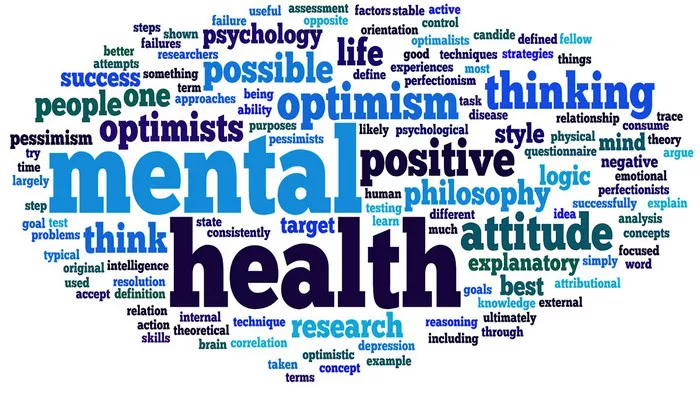Intermittent Explosive Disorder (IED) is a mental health condition characterized by recurrent, impulsive episodes of anger, rage, or aggression that are disproportionate to the situation. Individuals with IED may experience intense outbursts that are difficult to control, leading to verbal or physical aggression and damage to property.
Symptoms of IED: Manifestations of Uncontrollable Anger
Understanding the symptoms of IED is crucial for recognizing and addressing the condition effectively.
Behavioral Outbursts: Individuals with IED may exhibit explosive outbursts of anger, which can manifest as verbal aggression (e.g., yelling, screaming, making threats) or physical aggression (e.g., hitting, kicking, throwing objects).
Emotional Symptoms: Alongside behavioral outbursts, individuals with IED may experience intense feelings of anger, irritability, or rage. They may describe feeling “out of control” during these episodes, unable to manage their emotions effectively.
Frequency and Duration: Outbursts associated with IED are episodic and typically brief, lasting less than 30 minutes. However, they can occur frequently, often triggered by minor frustrations or perceived slights.
Causes and Risk Factors: Exploring the Underlying Influences
Several factors may contribute to the development of IED, including biological, environmental, and psychological influences.
Biological Factors: Genetic predispositions and abnormalities in neurochemical pathways implicated in mood regulation may increase susceptibility to IED.
Environmental Factors: Exposure to violence, abuse, or neglect during childhood can heighten the risk of developing IED later in life, as individuals may learn maladaptive coping mechanisms or have difficulty regulating emotions.
Psychological Factors: Co-occurring mental health conditions, such as depression, anxiety, or personality disorders, may exacerbate symptoms of IED, further complicating the clinical picture.
Diagnosis: Navigating the Path to Identification
A mental health professional can diagnose IED through a comprehensive evaluation of symptoms, medical history, and psychosocial factors.
Treatment Options: Strategies for Managing IED
Effective treatment for IED typically involves a combination of therapeutic interventions, medication management, and lifestyle modifications.
Cognitive Behavioral Therapy (CBT): CBT can help individuals with IED identify triggers for anger and develop strategies for managing their emotions and behaviors more effectively.
Medication: Certain medications, such as antidepressants or mood stabilizers, may be prescribed to help regulate mood and reduce impulsivity in individuals with IED.
Lifestyle Changes: Stress management techniques, relaxation exercises, and healthy lifestyle habits, such as regular exercise and adequate sleep, can help individuals with IED better cope with triggers and reduce the frequency and intensity of outbursts.
Support Groups: Joining support groups or therapy groups for individuals with IED can provide valuable opportunities for peer support, education, and skill-building in managing anger and aggression.
Coping Strategies: Practical Approaches for Self-Management
Empowering individuals with IED with coping strategies can enhance their ability to manage symptoms and improve their overall well-being.
Anger Management Techniques: Practical tips for managing anger include taking a timeout, practicing deep breathing exercises, or engaging in physical activity to release pent-up tension.
Communication Skills: Developing healthy communication skills, such as assertiveness and active listening, can help individuals express their feelings constructively and resolve conflicts peacefully.
Stress Reduction: Mindfulness practices, relaxation techniques, and engaging in enjoyable activities can help individuals with IED reduce stress and promote emotional regulation.
Importance of Seeking Help: Encouraging Treatment and Support
It’s essential for individuals experiencing symptoms of IED to seek professional help from a mental health provider for accurate diagnosis and appropriate treatment interventions. With the right support and guidance, individuals with IED can learn to manage their symptoms effectively and improve their quality of life.
Conclusion: Empowering Recovery and Resilience
Intermittent Explosive Disorder (IED) poses significant challenges for individuals struggling to cope with recurrent episodes of anger and aggression. However, with a comprehensive understanding of the condition, access to evidence-based treatments, and a supportive network of professionals and peers, individuals with IED can embark on a journey of recovery and resilience. By addressing the underlying causes of their symptoms and developing effective coping strategies, individuals with IED can regain control of their emotions and lead fulfilling lives.
[inline_related_posts title=”You Might Be Interested In” title_align=”left” style=”list” number=”6″ align=”none” ids=”6762,6759,6755″ by=”categories” orderby=”rand” order=”DESC” hide_thumb=”no” thumb_right=”no” views=”no” date=”yes” grid_columns=”2″ post_type=”” tax=””]


































